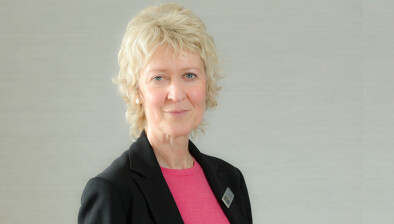Julie-Ann Cloherty: Why neurodiversity matters to our customers and our colleagues

Julie-Ann Cloherty, Share’s learning and development officer, outlines the importance of understanding neurodiversity.
Neurodiversity matters to everyone in the same way that the wider concept of diversity should matter to everyone. That is, until we understand and appreciate what the experience of the neurodivergent person is, we won’t be able to understand and appreciate the barriers or difficulties that neurodivergent people experience or be able to work on removing these obstacles to participation, so that they have the same opportunity to participate and reach their potential like neurotypical people have had.
Most people will know or know of someone, often a younger person who has been diagnosed as neurodivergent and will have a vague or broad understanding of what it means. I would have placed myself in this category until a few months ago.
However, a few months ago, someone close to me was put forward for an assessment for a neurodevelopmental condition that I was not particularly familiar with. This required a whole re-education for me in terms of understanding how the brain works for people with this condition, how various parts of the brain develop and interact, and how this can impact on just about everything that an individual this condition does, on how they see and interact with the world.
And this has been my experience of the understanding of neurodiversity so far, it is usually those individuals who have had to educate themselves and advocate for themselves or their loved ones that have the broadest understanding and are the most passionate about neuroinclusion, as I recently enjoyed hearing it described.
Neurodiversity is estimated to affect between 15-20% of the population, so it is imperative that workplaces and service providers start to consider what a neurodivergent person’s experience would be working in their office, or as their customer.
There are a broad range of conditions that sit within the term neurodiversity, including dyslexia, dyspraxia, ADHD, and autism. Within these conditions, there are also a wide range of symptoms to consider so it is understandable that people can be overwhelmed in how to approach the topic but starting with awareness building is key.
I visit many offices on my travels as an assessor, many have gone to great lengths to make sure that their buildings are physically accessible and rightly so, however these buildings can often be really brightly lit or have music playing in the reception area – both of which are sensory experiences that can be overwhelming to some people with neurodivergent conditions.
Open plan office layouts can be a challenge for a neurodivergent person as they are often noisy and have lots of distractions. I am not suggesting that we all therefore must go back to individual offices and closed doors… but for some of us this might be important for our sense of calm and productivity.
Just knowing that this might be a difficulty especially for some groups and being confident to have that conversation can be a game-changer for someone who has gone through life trying to fit into practices and procedures that do not fit with the way that their brain works.
It is this inclusivity that we strive to achieve for everyone, and doing so for the neurodivergent amongst us means first understanding the conditions, so they can succeed on the same terms as everyone else.
Share are hosting the following training course, ‘Neurodiversity and the customer experience’ which might be of interest to you/your colleagues:
• Date: 26th June 2025
• Costs: Member £110pp / Non-Member £250pp
• Time: 9.30am – 12pm
• Delivery: Zoom
• Book your place HERE or email info@share.org.uk







